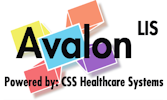Patients can take their medications as prescribed, yet still develop problems or reactions to them. Not all patients respond to medications in the same way. The way an individual patient’s body breaks down the drug and clears it from the body influences the effect of the medication.
Based on genetics, a patient may experience harmful side effects, need a different dosage, or fail to respond to a medication. Doctors need to personalize their approach to prescribing medications by turning to recent advancements in genetics so they can achieve the best results for their patients.
Personalizing Medications
Pharmacogenomics is the key to understanding how a medication will affect a patient so their treatment can be optimized. The Pharmacogenomics Module takes the guesswork out of finding the right dosages and medications to meet a patient’s unique needs. Instead of using trial and error to find the right treatment, doctors can use information in patients’ DNA to learn the correct treatment path.
The Pharmacogenomics Module allows a laboratory to run molecular diagnostic tests. Test results can be interpreted on-premises or transmitted to an interpretive service. An interpretive report can be attached to patients’ other results for a complete picture of the patient’s medical history.




